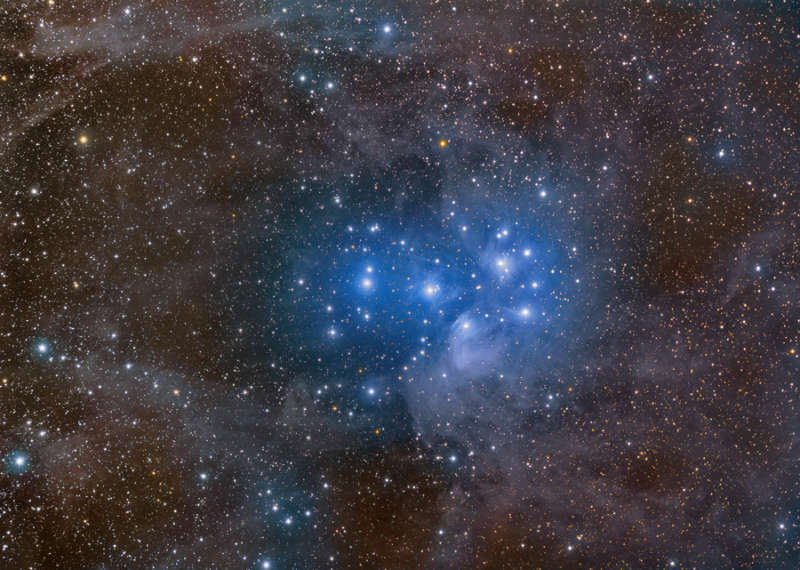 |
Астронет: Астрономическая картинка дня Плеяды и звездная пыль http://www.astronet.ru/db/msg/1236493/eng |
Credit & Copyright: Rogelio Bernal Andreo
(Deep Sky Colors)
Explanation:
Have you ever seen the Pleiades star cluster?
Perhaps the most famous star cluster on the sky, the
Pleiades
can be seen without binoculars from even the depths of a
light-polluted city.
Also known as the Seven Sisters and
M45,
the Pleiades is one of the
brightest and closest open clusters.
Hurtling through a cosmic dust cloud a mere 400 light-years away,
the Pleiades
or Seven Sisters
star cluster is well-known for its striking blue
reflection nebulae.
This remarkable wide-field (3 degree)
image of the region
shows the famous
star cluster near the center, while
highlighting lesser known dusty
reflection nebulas
nearby, across an area that would
span
over 20
light-years.
In this case, the sister stars and
cosmic dust clouds
are not related, they just happen to be passing through
the same region of space.
Authors & editors:
Robert Nemiroff
(MTU) &
Jerry Bonnell
(USRA)
NASA Web Site Statements, Warnings,
and Disclaimers
NASA Official: Jay Norris.
Specific
rights apply.
A service of:
LHEA at
NASA /
GSFC
& Michigan Tech. U.
